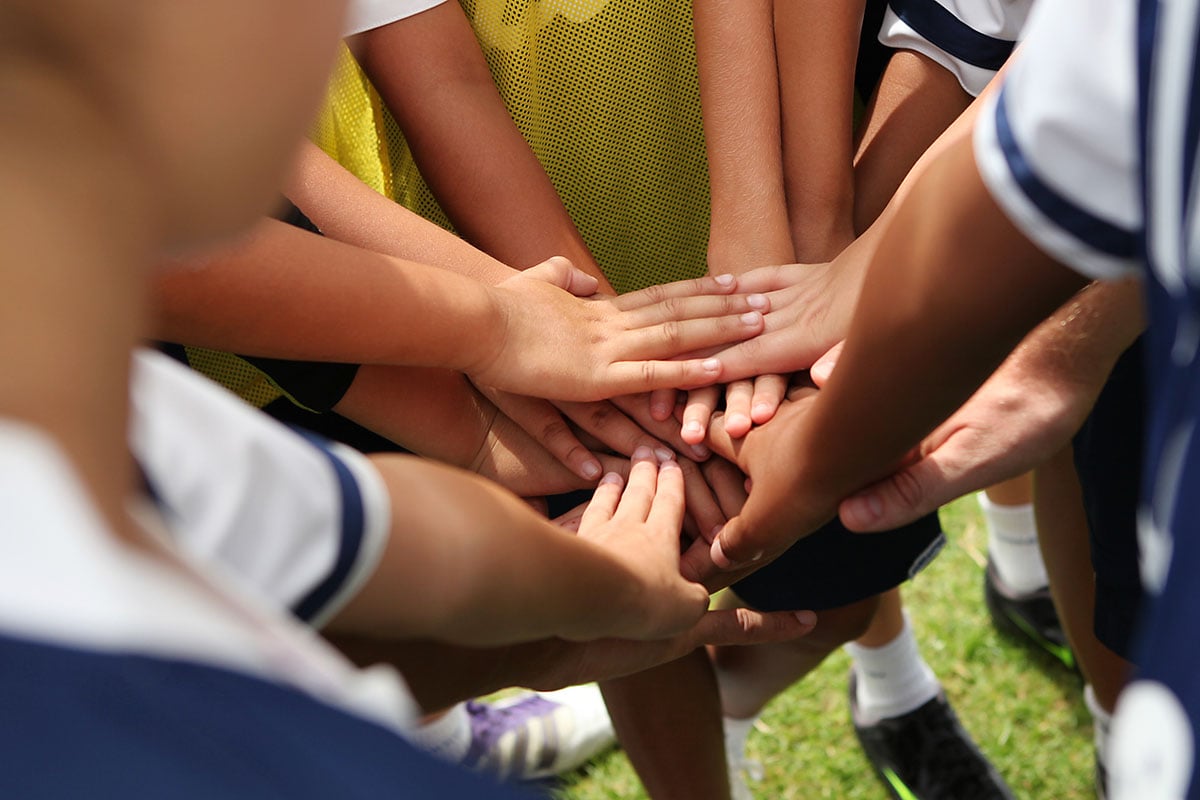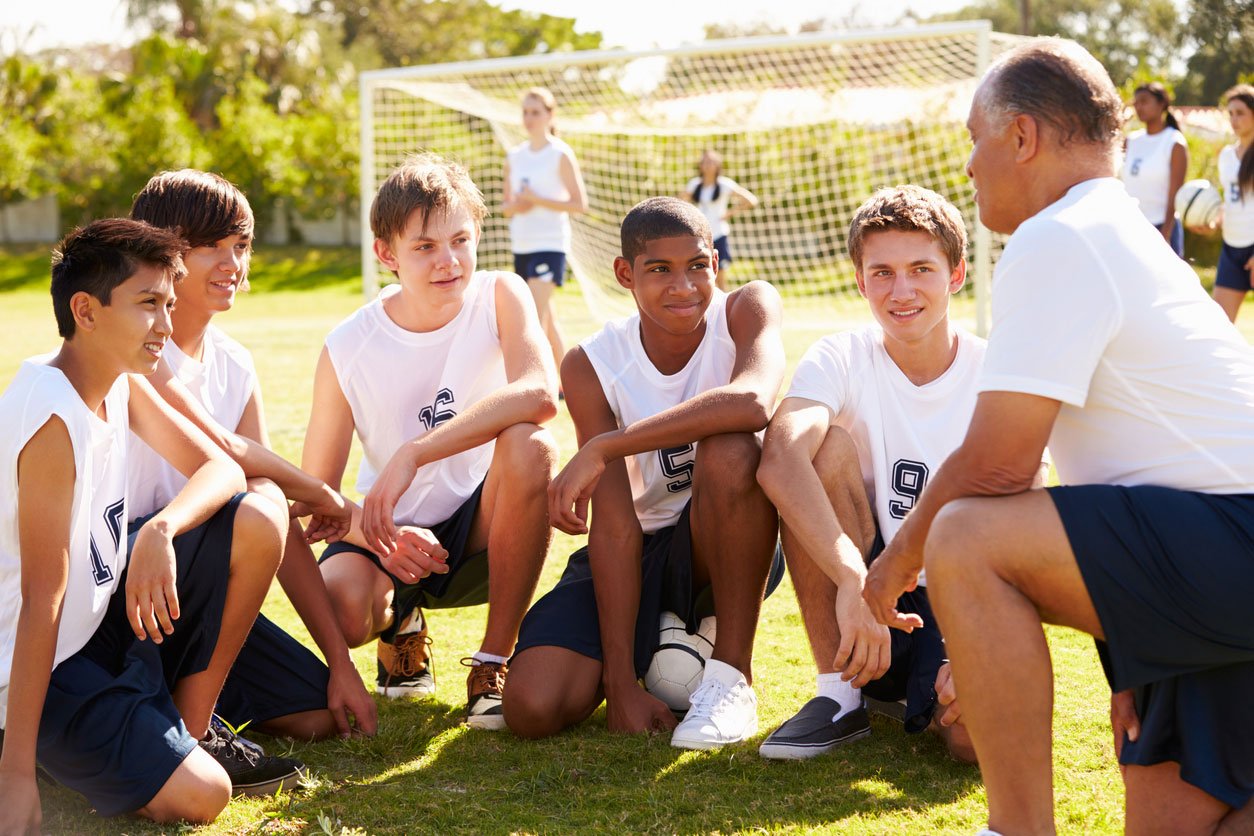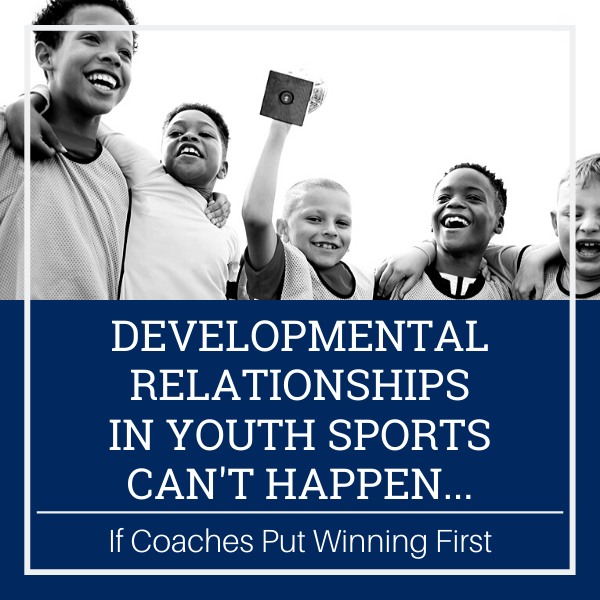By Peter C. Scales, Ph.D. and Benjamin J. Houltberg, Ph.D., Search Institute
We wrote a brief white paper recently about a new Search Institute initiative being planned about youth development through sports, specifically, about developmental relationships and sporting honor, and why youth sports needs more coaching around those themes.
We wrote that white paper before the insurrection and invasion of the U.S. Capitol on Jan. 6, 2021 by thousands of supporters of Donald Trump, featuring outlandish conspiracy spinners, hateful white supremacists, Holocaust deniers, and others who were egged on by him and given energy by some shameless media organizations and cowardly politicians. Add into that national trauma the ongoing catastrophe caused by the COVID-19 pandemic, especially in Black and Brown communities, and the never-ending “breaking news” about yet another unarmed Black person, usually but not always men, shot by police, and some might think, why be talking about improving relationships and honor in youth sports at a time like this, when our very democracy is threatened from political, racist, and medical viruses? Isn’t youth sports a bit of a luxury?
Our response is, there is no better time to be talking about compassion, caring, support, respect, decency, humility, and honor than now, and what they mean for how we interact with young people and the examples we set for them.
At a time when so many leaders in our country, and the citizens they influence, are modeling dishonorable behavior, elevating lies over truth, placing selfishness and narcissism over the common good, choosing aggression and violence over peaceful and respectful disagreement, arrogance and ignorance over humility and understanding, whining and excuse making over problem-solving, and abusing power over sharing power, the messages and examples we adults give to young people in all settings matter dearly to the future of our country.
Let us be clear. Not every person in those riots was a domestic terrorist, but they willingly and enthusiastically participated in what was promised to be a “wild” event of takeover. And we know now that this was no simple protest gone bad. It was a planned event, planned to look spontaneous but meticulously scripted, and carried out with the military equipment and efficiency that is not present in a non-violent, peaceful protest, even if it seemed chaotic. Too many adult elected leaders and media organizations encouraged this, or looked away, or tried to hide behind a distorted, ahistorical, and incorrect understanding of the First Amendment right to free speech. Every young person in this country is affected by those examples.
It IS a leap then, in some ways, to go from this insurrectionist horror, to the long-standing, insidious, and often openly displayed dishonor and sometimes physical violence against norms of decency that occurs at every level of sport. But there is a connection. Parents assaulting referees in youth sports (why we have a shortage of officials now). A college football player blindside tackling a ref after a disputed call. Cheating scandals at the pro level of football and baseball, using sports to cheat on college admissions, and even cheating by a very few in one of our sports (PS), tennis (pretty low-ranked players getting paid to throw matches). And the back and forth from courage to timidity in college football this past season that has been thoroughly reported, first some conferences not playing and then playing despite COVID and all the predictable sequelae that came after. What drives this? Money and needing to win, whatever the cost. The cost that usually is born by the players, most of whom come from Black and Brown communities.
What happened at the Capitol, and what happens too often in sports, are symptoms and evidence of the same focus on the wrong values by too many, and especially too many leaders from federal to state to local, from leaders on the playing field and in elected or appointed office, from too many parents, and on and on. Sports and politics aren’t the only arenas, of course, and most leaders and most parents, just like most law enforcement, are not doing these things. But dishonor is in the culture.
Sports is a vital arena in which to do better for our young people.
Why sports? Because of the enormous cultural influence sports has on what youth think, how they act, and what they consume.
Why sports? Because the win at all costs mentality and inability to graciously accept losing and simply learn from it, is at the heart of much dishonor in all levels of sport and, politically, by the inability of a president to accept a solid election loss was a prime driver of the domestic attack and murderous rampage at the Capitol.
Why sports? Because more than 45 million children and youth in the U.S. play organized sports and call it one of the top things they do in life that gets them engaged, passionate, and committed. In Search Institute surveys, our kids tell us sports is one of their two most favorite things to do (creative arts is the other). What an opportunity we have, they have, to grow in healthy ways from that experience they’re already passionate about!
What better time and in what better context to make sure that the way youth sports coaches are trained focuses on making coaches’ relationships with their student-athletes positively transformational, and rooted in teaching young people how to compete with passion, yes, but also with humility, emotional maturity, a commitment to learning, and respect for others and for values that transcend self-interest? Those principles and habits aren’t antagonistic to success—they predict success.
Especially in the wake of the incited riots and tragic loss of life in Washington, D.C., and the hoped-for return of youth sports to something nearer to normal later in 2021 as COVID vaccines begin to dampen the spread of the virus, now is the right time to make a renewed commitment to provide the kind of youth sports coaching that our kids need. And now, it’s not just for them—it’s for our country.
_____
Peter C. Scales is in his 26th year as Senior Fellow at Search Institute. A high school and college tennis coach, he is a U.S. Professional Tennis Association-certified tennis-teaching pro, and author of the award-winning book, Mental and Emotional Training for Tennis: Compete-Learn-Honor (Coaches Choice, 2019), which the National High School Tennis Coaches Association called one of the best books ever on the mental game.
Benjamin J. Houltberg is Vice-President for Research and Practice at Search Institute, a licensed therapist, and former elite runner and high school coach. He most recently was the Director of Research for USC’s Performance Sciences Institute and continues to work as a consultant with the USC Athletic Department as well as coaches and athletes around the world.





